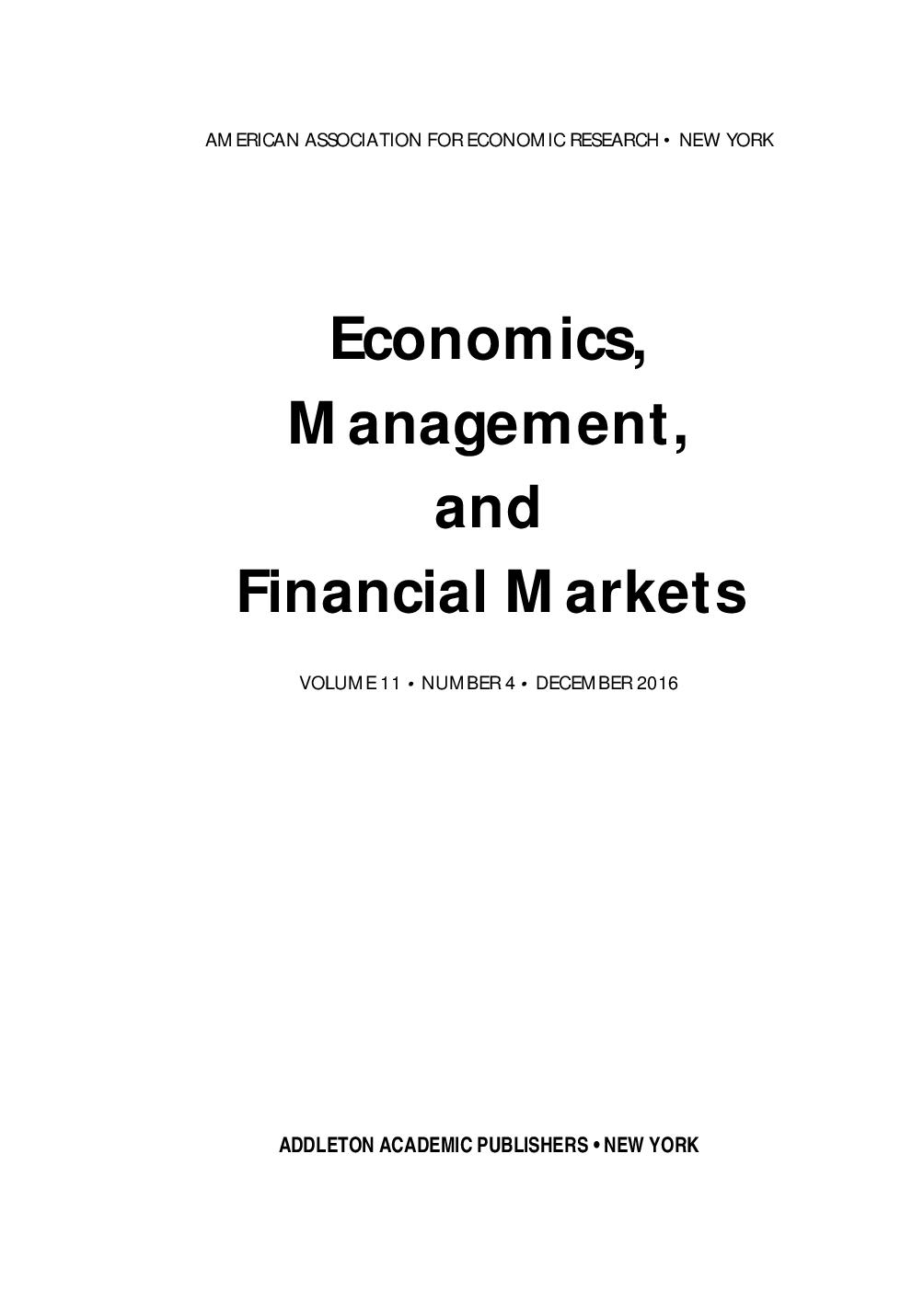VOLATILITY MODELING OF THE JSE ALL SHARE INDEX
AND RISK ESTIMATION USING THE BAYESIAN AND FREQUENTIST APPROACHES
VOLATILITY MODELING OF THE JSE ALL SHARE INDEX
AND RISK ESTIMATION USING THE BAYESIAN AND FREQUENTIST APPROACHES
Author(s): Caston SigaukeSubject(s): Supranational / Global Economy, Business Economy / Management, Financial Markets
Published by: Addleton Academic Publishers
Keywords: Bayes; GARCH; portfolio management; Student-t distribution; risk management;
Summary/Abstract: This paper focuses on volatility modeling of the Johannesburg Stock Exchange (JSE) all share index and risk estimation using the Bayesian and frequentist approaches. A Bayesian Autoregressive Moving Average-Generalized Autoregressive Conditional Heteroskedasticity (BARMA-GARCH-t) modeling of the All Share Index (ALSI) at the Johannesburg Stock Exchange (JSE) under the assumption of Student-t innovations is presented. The ALSI data is for the years 2002 to 2013. Uncertainty about the true values of the GARCH parameters is incorporated into the analysis through a non-informative joint prior distribution. A comparative analysis is done with a standard GARCH model with Student-t innovations (ARMA-GARCH-t) using the maximum likelihood (ML) method. Empirical results from this study show that BARMA-GARCH-t model captures well both the conditional and unconditional volatilities of the ALSI share index at the JSE. The BARMA-GARCH-t model provides a better fit to the data compared to the bench mark model which is the ARMA-GARCH-t model. The results are important to stock brokers, risk and investment managers.
Journal: Economics, Management, and Financial Markets
- Issue Year: 11/2016
- Issue No: 4
- Page Range: 33-48
- Page Count: 16
- Language: English
- Content File-PDF

